Why I like stewardship over ownership
Words carry weight. I often hear the question, “Who is the owner?” when it comes to various and important projects at work. Sometimes I’m the one asking! But there is an alternative term that I like a lot more: steward. Let me explain why.
‘Owner' implies possession and control over something. Conversely, 'steward' denotes responsibility and care for something owned by someone else. This subtle difference in terminology reflects a deeper divergence in mindset and approach towards our roles in a company.
Accountability is super important. You need to have clear lines of responsibility. However, when it comes to elements like messaging, design, a website, programs, a product, or any other aspect of a company, the notion of ownership can be troublesome. These are collective assets that the company owns, not you or me. Not any one person, really.
It's essential to feel pride in our work and to approach it with passion. But, often without realizing it (until we’re faced change), a sense of ownership can lead to resistance to change, especially when feedback is directed at something we've invested significant time, effort, and emotion in.
Given the amount of energy we put into our projects and work, it’s easy for them to become part of our sense of identity. Sometimes it feels almost like a personal attack when our work is questioned or asked to be changed. That’s the dark side of ownership.
Adopting a stewardship mindset facilitates a separation between our work and our identity. As stewards, our goal is to optimize the company's assets for the benefit of the company, not ourselves. This perspective encourages a focus on what's best for the company rather than holding onto personal attachments.
Having a stewardship mindset doesn't eliminate the space for personal opinions. It's crucial to have strong opinions, to engage in discussions, and even to disagree. However, the ultimate goal remains clear: to prioritize the company's interests and remain open to change and improvement.
In the long run, this shift in mindset from ownership to stewardship proves beneficial both for the company and us. It promotes adaptability, openness to feedback, and a collaborative atmosphere, which not only drives the company's success but also fosters personal growth and a healthier perspective of the role of work in our lives.
